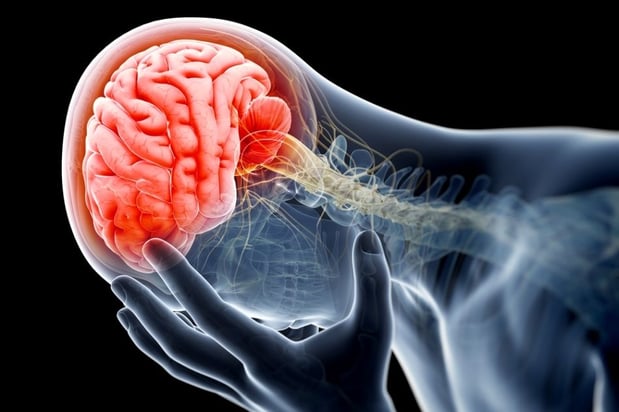What do drugs do to the brain? There are many effects, mental and physical, on the brain that can be caused by all types of drugs. The most concerning affect of drugs is the addiction to the drugs themselves. Addiction is controlled by the brain, and is generally defined as a chronic and relapsing disease, which causes drug-seeking and drug-abuse behavior despite the known ill effects and consequences.
How the Brain Works
In order to understand what drugs do to the brain, it is important to understand how the brain works and how drugs change how the brain receives, sends and processes information. Here is one example of a basic brain function that is altered by drugs:
Dopamine, a neurotransmitter that regulates movement, emotion, motivation, pleasure, and reward, is released from the brain. Drugs can imitate or augment the natural neurotransmitters or chemical messengers in the brain, and cause abnormal messages to be sent out from the brain, resulting in the desired "high." The brain adapts to drug-induced surges of dopamine by producing less of the natural chemical. This makes the addict crave more drugs in order to get the same dopamine effect. More drug use and abuse perpetuates the cycle and keeps the addiction alive.
Drugs that Affect the Brain
Drugs that affect the brain and a person’s behavior include, but are not limited to:
- Sedatives can cause drowsiness, sleep and possible coma. They depress the forebrain and brain stem, leading to blocked arousal.
- Opiates can induce euphoria and pain relief. They can alter the emotional response to pain.
- Stimulants excite the Central Nervous System (CNS). They can cause euphoria, increased alertness and diminished appetite.
- Hallucinogens can cause delirium, intense emotions, abnormal color perception, and time and space distortion. They also can upset the brain's cognition and perception.
The Immediate Changes to the Brain
Drugs change the brain’s structure and function. Almost all drugs affect the brain’s reward system.
There are immediate changes to the brain when drugs are used, which include:
Psychological Changes
- Short-term memory impairment, which can lead to more serious memory loss for the chronic abuser
- Damage to the cognitive functions of the brain
- Hallucinations, which are a distortion in the user’s perception of reality
- Loss of self-control
- Impaired judgement and decision-making
- Increased need or desire for more drugs
- Escalation of risk-taking behaviors, including trying illicit drugs
- Negative effects on the executive functioning areas of the brain (the frontal cortex and the pre-frontal cortex), which include organizing and acting appropriately (especially affected when an addict is under 25 years old because the brain is still developing)
- Altered inhibitory function, which can cause an addict to engage in aggressive, sexual or criminal activity that leads to consequences for the addict or those around them
- Mental addiction--drugs depress the central nervous system, including the brain, spinal cord, and sensory pathways--the abuser is pain free and euphoric, and wants more drugs to replicate the feelings
Physical Changes
Brain imaging of those on drugs shows changes in areas of the brain that control judgment, decision-making, learning, memory and behavior control. High amounts of some drugs, especially heroin, can cause the medulla oblongata portion of the brain stem to depress or stop the user's breathing.
Long-Lasting Effects
There can be permanent changes to the brain if a drug is taken repeatedly and habitually. The physical and psychological effects of drug use on the brain can vary from addict to addict. The specific drug(s) used, longevity of use and genetic and environmental factors can influence effects, as well.
If you or someone you know is seeking help with substance addiction, please visit our directory of treatment centers or call 866-606-0182 to start the path to recovery today.








